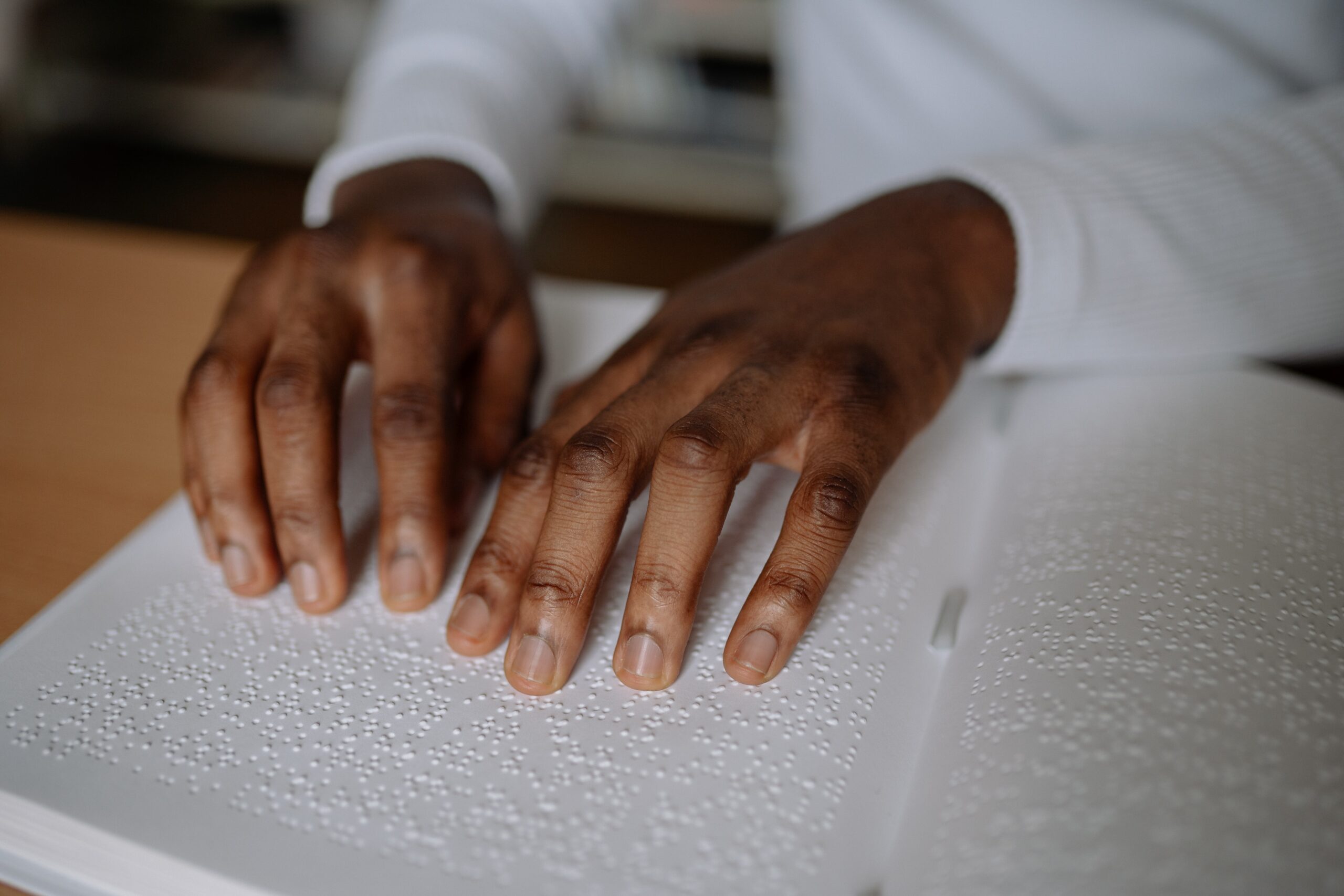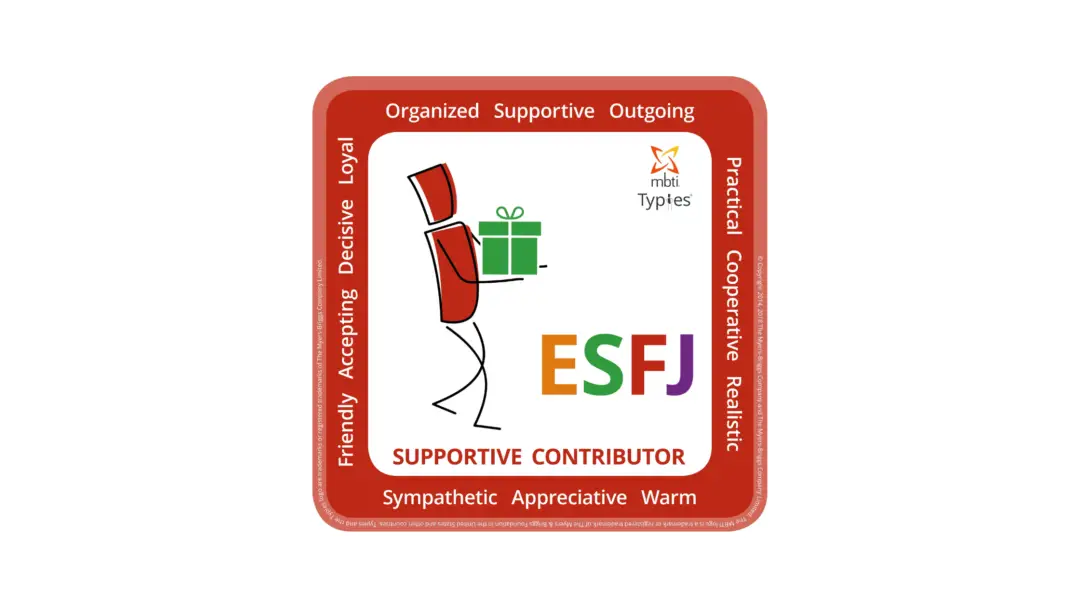There are tons of hobbies that people with visual-impairments can pursue and enjoy!
Make the most of your free time with these fun and enjoyable hobbies and activities.
Some popular hobbies include listening to music, reading, listening to audiobooks, playing musical instruments, gardening, cooking, and practicing meditation or mindfulness & more…
This article contains affiliate links. If you make a purchase through a link on our site you are supporting our continued efforts to educate people like you in finding new and rewarding hobbies. Thank you!
Listening to Music
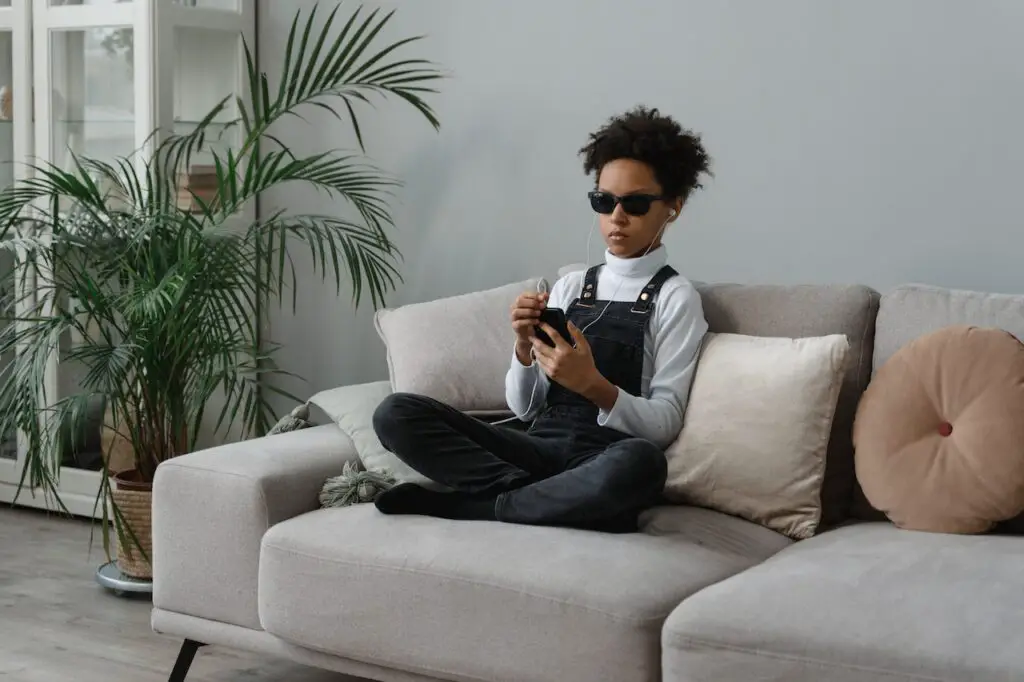
Listening to music is a great hobby for visually impaired people as it provides enjoyment, relaxation and stress relief.
Many visually impaired people may find that they enjoy listening to music as a hobby as it can be enjoyed almost anywhere without much gear. Just grab a decent pair of headphones to enjoy a wide range of music, from classical to contemporary, rap and folk music.
Many visually impaired people enjoying making music and pursue hobbies in piano or guitar, using braille sheet music or other assistive technologies to help read and play the music.
Reading / Audiobooks
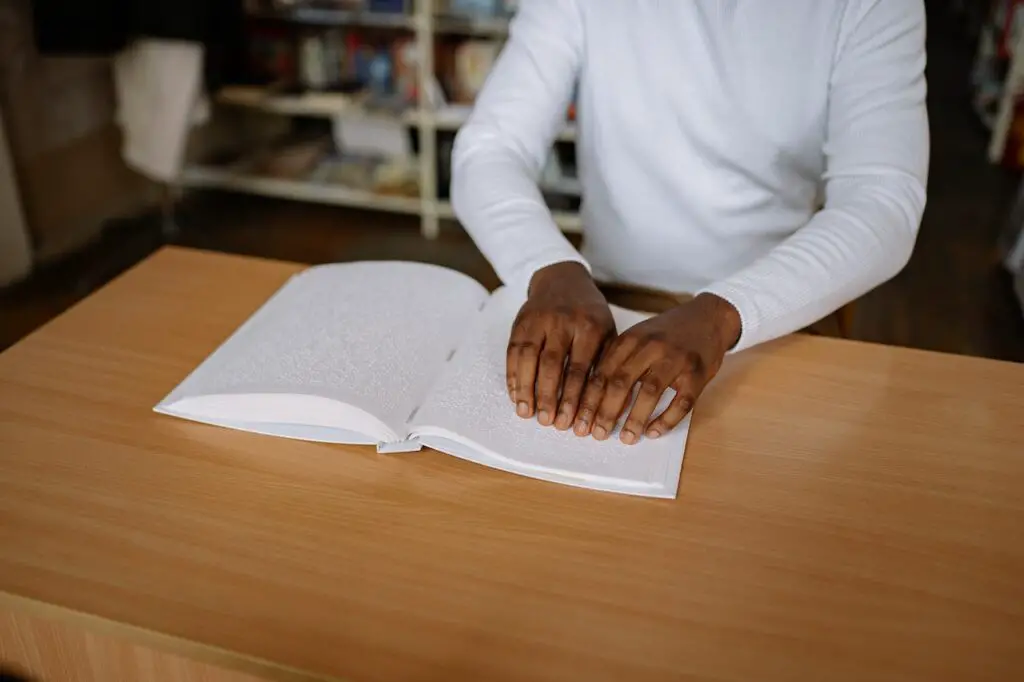
Reading and listening to audiobooks are popular hobbies among people with visual impairments.
With the help of assistive technologies such as text-to-speech or braille displays, visually impaired people can enjoy reading a wide range of books, from novels and biographies to non-fiction works.
Many public libraries and bookstores also offer a selection of audiobooks that can be borrowed or purchased, providing visually impaired people with an accessible and convenient way to enjoy new books!
Gardening

Gardening is a great hobby that can be enjoyed by anyone who enjoys working with their hands and spending time outdoors.
With the help of assistive technologies such as raised-line drawings or tactile markers, visually impaired people can learn to identify and care for a wide range of plants and flowers.
Gardening can provide a sense of accomplishment and relaxation, and can even be a source of fresh homegrown fruits and vegetables.
Cooking

Cooking is another popular hobby among visually impaired people who enjoy delicious meals and working with their hands.
With the help of assistive technologies such as talking kitchen scales or braille measuring cups, visually impaired people can learn to cook a wide range of dishes, from simple meals to more complex recipes.
Cooking can provide a sense of accomplishment and can also be a fun and social activity, as visually impaired people can invite friends and family to join them in the kitchen.
Mindfulness Meditation

Practicing meditation or mindfulness is a hobby that can be enjoyed by people of all experiences and abilities, including those who are visually impaired.
Meditation and mindfulness can provide a sense of calm and relaxation, and can help visually impaired people to manage stress and anxiety.
There are many different forms of meditation and mindfulness, from simple breathing exercises to more complex practices; choose the practice that works best for you.
Using meditation apps like Calm and Headspace are a great way to stay consistent with your meditation practice and learn new techniques.
Check out these 5 Free Meditation Apps for Beginners to Reduce Stress & Anxiety if you’re on a budget or want to try out a simple meditation app.
Check our full article on mindfulness meditation here to learn more…
Knitting / Crochet
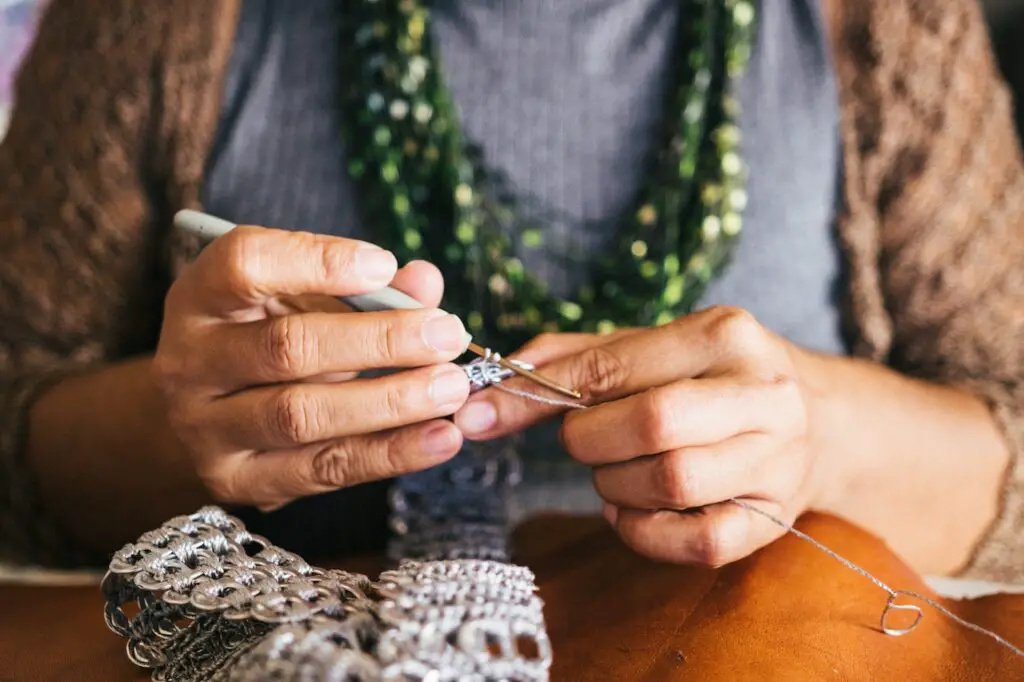
Knitting or crocheting can be a relaxing and enjoyable hobby for blind or visually impaired people.
Many people who are blind or visually impaired use their sense of touch to guide their work, and may also use special tools or techniques to make knitting or crocheting easier.
Get crafty and start making gifts for friends and family with a new knitting hobby!
Poetry
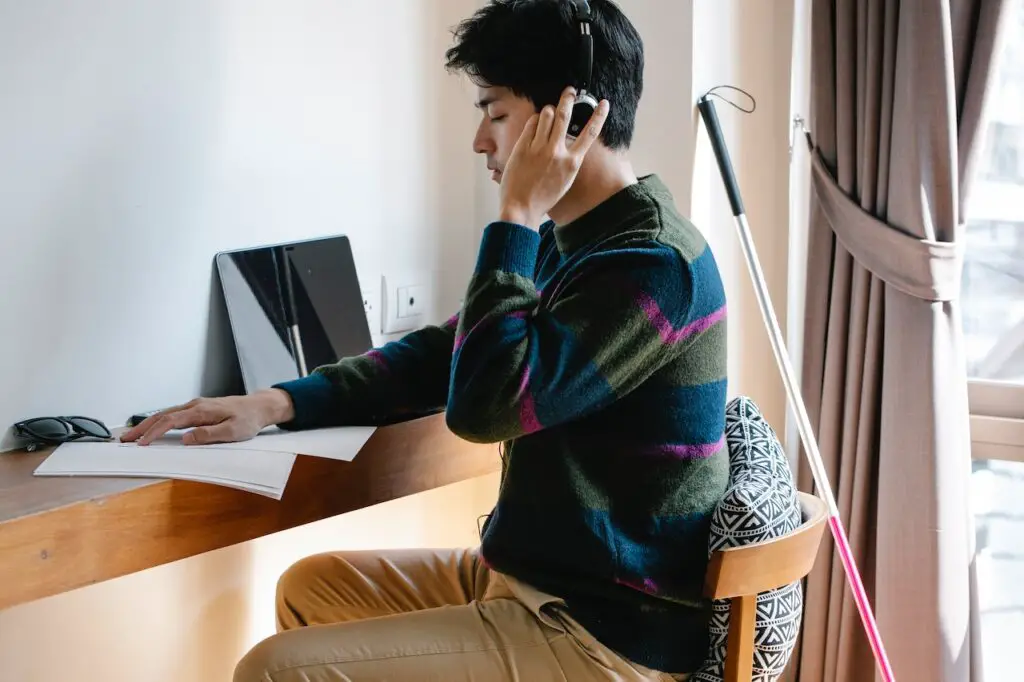
Some visually impaired people may enjoy creative writing, journaling or reciting poetry as an enjoyable hobby.
Poetry can be a cathartic, creative outlet and a way to express oneself through words, process emotions and create beautiful art to share with friends and family.
Podcasting
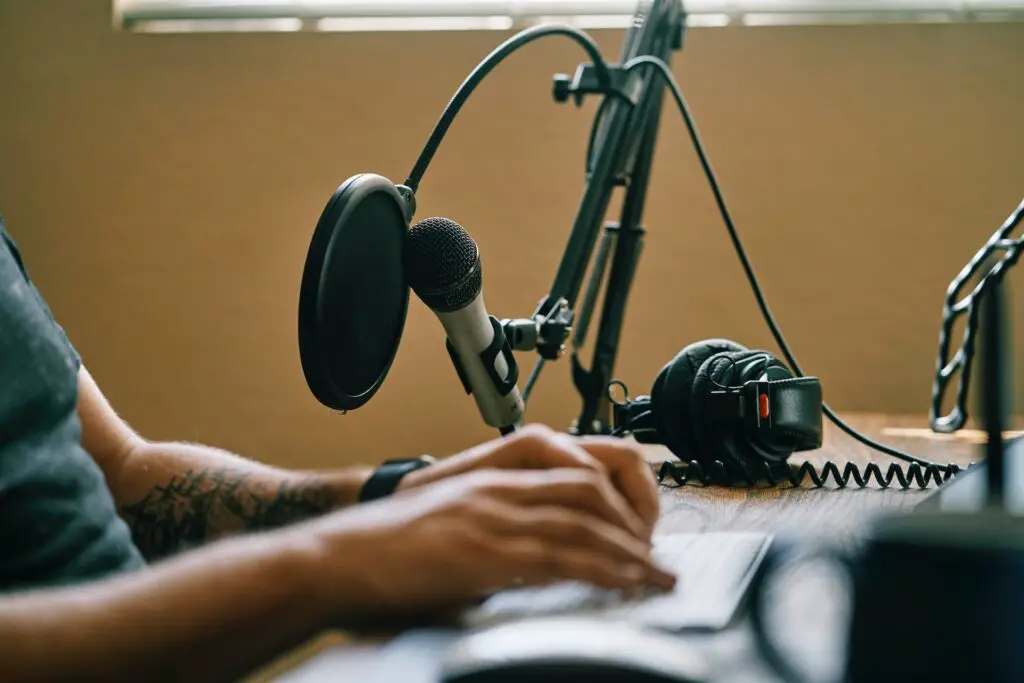
Some blind or visually impaired people may enjoy listening to or creating podcasts as a hobby.
Podcasts are audio recordings, conversations and dialogue that can be listened to on a computer or mobile device, and cover a wide range of topics.
Find a topic you are interested in and get lost in the interesting conversation and learning.
Hiking
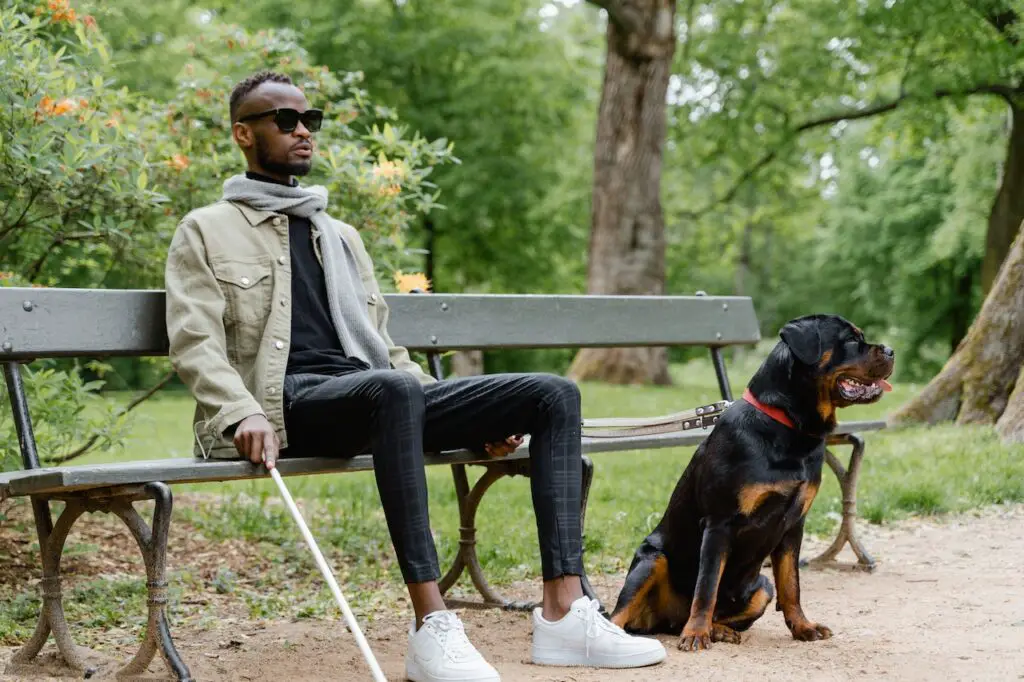
Many blind people may enjoy hiking and walking in nature as a hobby for leisure and exercise.
Many people will make use of a cane or a guide dog to navigate while hiking, and may use other special tools or techniques to make hiking more accessible.
Get out there and enjoy the sounds of nature and soak up some Vitamin D!
Scrabble
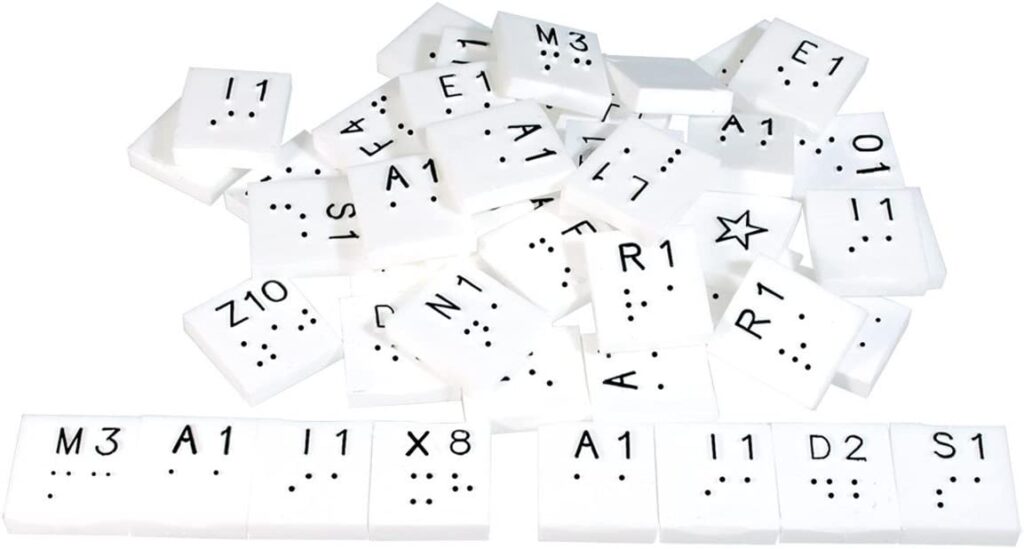
Scrabble is a popular word game that can be played by blind or visually impaired people.
Players use tiles with braille or raised letter tiles to create words on a board, and may use braille or other tactile markings to help them locate the tiles.
There are tons of accessible board games on the market and can be played by both blind and regular vision folks together!
Chess
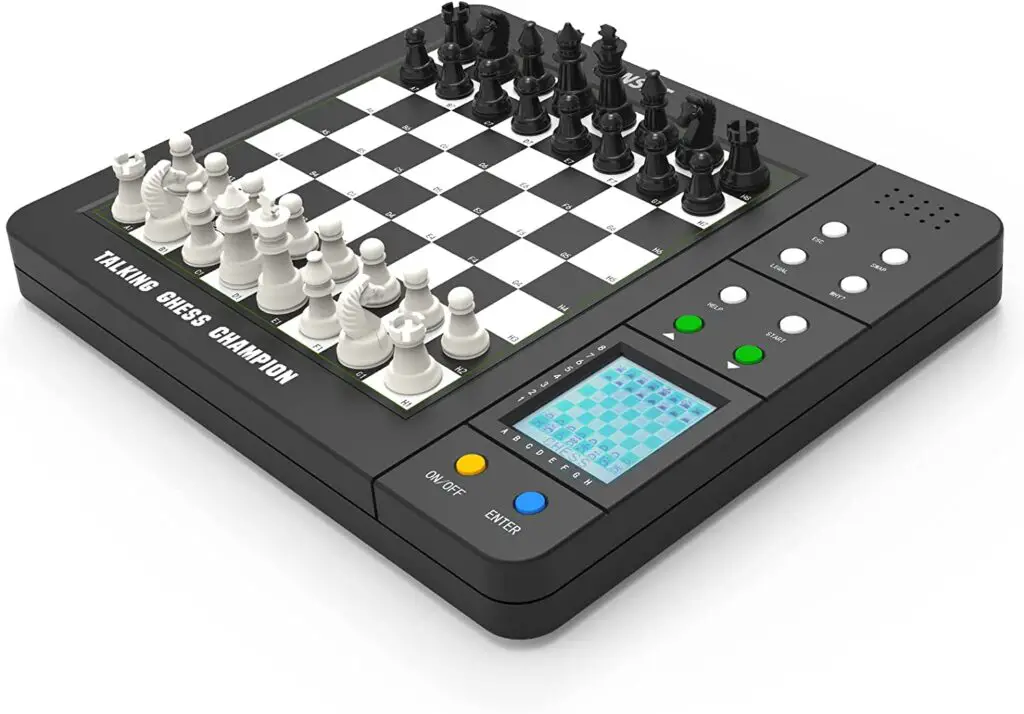
Chess is a popular board game that can be played by blind or visually impaired people.
Players use specially designed chess sets with raised pieces and tactile markings or talking chess sets to help them locate and move the pieces.
A few our our favorite Accessible Card Games / Table-Top Games for People With Visual Impairments include:
Rubik’s Cube

Rubik’s Cube Braille is specially designed for the blind!
The feeling is stronger than the ordinary cube, allowing the player to read the content quickly and accurately.
The braille rubik’s cube is perfect for reducing stress, exercising your brain, improving memory and practicing hands-on dexterity skills.
Blind and visually impaired people can find hobbies that provide them with a sense of enjoyment and accomplishment anywhere. With the help of assistive technologies, blind people can enjoy these hobbies and live active and fulfilling lives while pursuing passions!
What adaptive devices can help visually impaired people with their hobbies?
There are many adaptive devices that can help visually impaired people enjoy their daily lives and hobbies to the fullest.
Some common examples include audio-description devices, braille displays, talking kitchen scales, raised-line drawings, and tactile markers.
Audio-description devices can help visually impaired people enjoy hobbies such as listening to music or watching movies.
These devices provide a narrated description of the action on screen, allowing visually impaired people to better understand and appreciate the content.
Braille displays can help visually impaired people to enjoy hobbies such as reading and writing. These devices use a series of raised dots to represent letters and numbers, allowing visually impaired people to read and write in braille.
Talking kitchen scales can help visually impaired people to enjoy hobbies such as cooking. These scales use a voice output to announce the weight of an object placed on the scale, allowing visually impaired people to accurately measure ingredients for their recipes.
Raised-line drawings can help visually impaired people to enjoy hobbies such as drawing or painting. These drawings or coloring pages use raised lines to represent the contours and details of an image, allowing visually impaired people to feel and fill in the spaces accurately.
Tactile markers can help visually impaired people to enjoy hobbies such as gardening. These markers use a raised pattern or shape to identify different plants or flowers, allowing visually impaired people to easily identify and care for their plants.
Withe the aide of these devices, visually impaired people have access to tools they need to enjoy their hobbies pursue active and fulfilling leisure activities.
What adaptive sports can blind and visually impaired people play?
Along with a variety of accessible and fun hobbies for blind people, there are a variety of sports and games that are fun to try out as well! Check out the link on each sport name to view various resources and organizations affiliated with that sport.
There are many adaptive sports that are suitable for blind or visually impaired people, including:
- Goalball: This is a team sport specifically designed for blind and visually impaired athletes. It is played on a basketball-sized court with a ball that has bells inside. Players use their hearing to locate the ball and try to roll it into the opposing team’s goal.
- Blind Golf: This is a modified version of golf that is played by blind and visually impaired athletes. The ball is slightly larger and has a rattle inside to help players locate it. The course is also modified to include tactile markers on the ground to help players navigate to their shots.
- Blind Football: This is a version of soccer played by blind and visually impaired athletes. The ball makes a noise and the field is marked with tactile lines to help players navigate.
- Blind Cricket: This is a version of cricket played by blind and visually impaired athletes. The ball makes a noise and the field is marked with tactile lines to help players navigate.
- Blind Tennis: This is a modified version of tennis played by blind and visually impaired athletes. The ball is slightly larger and has a rattle inside to help players locate it. The court is also modified to include tactile markers on the ground to help players navigate to their shots.
- Blind Bowling: This is a modified version of bowling played by blind and visually impaired athletes. The alley is marked with tactile lines to help players navigate and the ball has a rattle inside to help players locate it.
- Blind Judo: This is a modified version of judo played by blind and visually impaired athletes. The mat is marked with tactile lines to help players navigate and the opponents wear a belt with bells to help players locate them.
- Blind Fencing: This is a modified version of fencing played by blind and visually impaired athletes. The opponents wear a vest with a speaker that makes a noise when they attack, and the fencing strip is marked with tactile lines to help players navigate.
As you can tell, there are lots of sports and adaptability options to make athletics accessible and fun for folks with visual impairments.

Resources for Blind People to Find Hobbies and Sport
There are many organizations that can assist visually impaired people find new hobbies, sports and activities to get involved in.
Check out the organizations below for more information and resources…
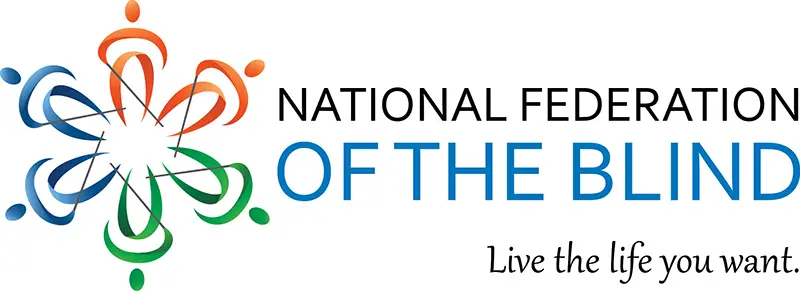
The National Federation of the Blind (NFB) is a nonprofit organization that provides support, resources, and advocacy for people who are blind or visually impaired.
The NFB offers a wide range of programs and services designed to help visually impaired people lead active and fulfilling lives, including programs that focus on education, employment, and access to technology.
The NFB also provides information and resources on hobbies and leisure activities for visually impaired people, including a directory of national and local organizations that offer programs and services for visually impaired people.

The American Foundation for the Blind (AFB) is another nonprofit organization that provides support and resources for people who are blind or visually impaired.
The AFB offers a wide range of programs and services designed to help visually impaired people live independently and participate fully in society, including programs that focus on education, employment, and access to technology.
The AFB also provides information and resources on hobbies and leisure activities for visually impaired people, including a directory of organizations that offer programs and services for visually impaired people.
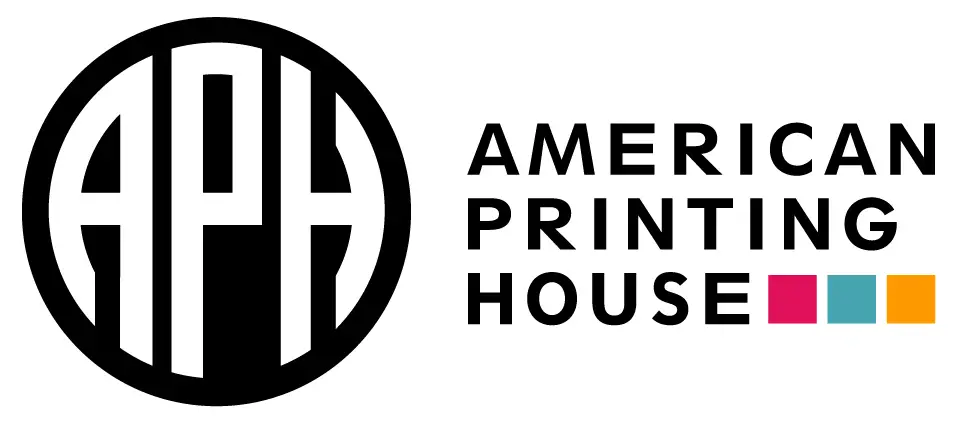
The American Printing House for the Blind (APH) is a nonprofit organization that provides educational and assistive technology products for people who are blind or visually impaired.
The APH offers a wide range of products and services designed to help visually impaired people access information and education, including braille books, audio books, and assistive technology products.
The APH also provides information and resources on hobbies and leisure activities for visually impaired people, including a directory of organizations that offer programs and services for visually impaired people.

The United States Association of Blind Athletes empowers Americans who are blind and visually impaired to experience life-changing opportunities in sports, recreation and physical activities, thereby educating and inspiring the nation.
Every American who is blind or visually impaired will lead a healthy lifestyle by actively participating in sports, recreation and physical activity.
Check out more of their sports and athletic offerings over at their official website to get involved.

